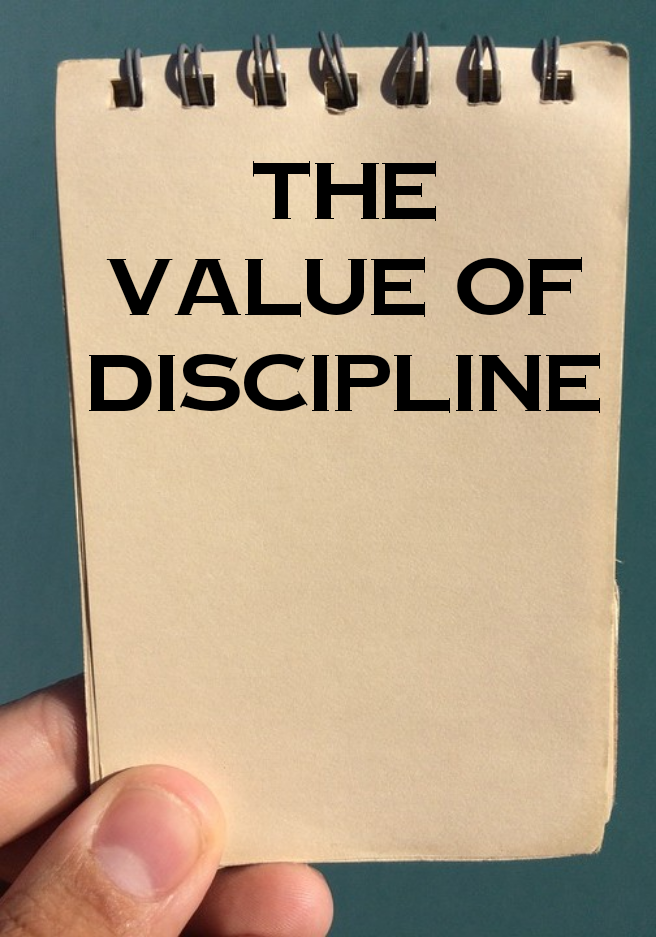THE VALUE OF DISCIPLINE
THE VALUE OF DISCIPLINE


Discipline means the training of the mind so as to make it accept willingly the control of rules or orders. It is a valuable lesson to learn, - in many ways the most valuable that one can learn. The great nations of the world attained greatness by subjecting themselves to the most rigorous discipline. The ancient Hindus as well as the ancient Spartans insisted on the need of leading a controlled life. They knew that without strict control man’s energies often go to waste in useless, undirected efforts.
Discipline is necessary in the first place for one’s moral life. Self-indulgence is a natural temptation. Our senses crave easy satisfaction. But if we give way to this craving, we will in course of time think of nothing but this. It is the easier path, - (the path of pleasures is strewn with flowers), - but it leads to misery in the long run. Therefore we must keep our passions under the strictest control. We can do this in two ways. First, we must accept a noble ideal. Pursuit of an ideal will remove from the mind the longing for personal pleasure. Man is greater than all animals because man is ready to sacrifice all the pleasures of life for a noble cause. Secondly, we must accept the guidance of our chosen leaders. In every organised effort, where many take part, there must be one person in command. To submit to the orders of this leader is no shame; rather it is the noblest virtue. At school we must submit to the discipline of the teacher; on the playground, of the captain : at home, of our superiors. Whenever we are inclined to rebel against this discipline, we should remember, “He alone can command who knows how to obey.”
Discipline is equally necessary in our intellectual life. The intellect must function under the strictest control, if it is to do any real work. For example, if a man reads a few pages of one book today and of another on the morrow, if he is unable to fix his attention on any one topic till it is mastered, he will not learn anything. But the man who accepts discipline in his intellectual pursuits is sure to achieve “some work of noble note.”
Discipline is equally necessary in our intellectual life. The intellect must function under the strictest control, if it is to do any real work. For example, if a man reads a few pages of one book today and of another on the morrow, if he is unable to fix his attention on any one topic till it is mastered, he will not learn anything. But the man who accepts discipline in his intellectual pursuits is sure to achieve “some work of noble note.”
Discipline is necessary in our spiritual life. If we admit the existence of an immortal soul, we must recognise the activity and development of this soul. The spiritual activity must be guided according to a system. This is religion; this is the meaning of ascetic self-denial in the pursuit of God.
No great work can be done without a strong sense of discipline. For the soldiers who march to the battle-field, “their’s not to reason why; their’s not to make reply; their’s but to do and die.” For the young man who responds to the call of the country, there is the supreme need of subordinating his own impulses and desires to the direction of some higher body. For the student there must be respect for discipline imposed upon him by his school. This is not pleasant; often it is extremely irritating; but to be disciplined is always to be on the way to success. It develops our higher virtues, our higher virtues, our higher nature. Self-control, obedience, single-minded devotion to duty, the capacity for self-sacrifice - these are the virtues fostered by a sense of discipline. Can there be anything higher than these?
Discipline is not slavery. It has a higher object in view. Slavery is blind subservience to the master’s will. The slave is not expected to know why he is to act in a particular way. But this is against the spirit of discipline, for true discipline lies in a conscious subordination of self to the achievement of some higher purpose.
Hence discipline must not be mechanical, for man is not a machine. It cannot mean the negation of independent judgement. It must be based on understanding, on intelligent acceptance. No man has the right to demand blind submission to authority, nor should one forego the privilege of being guided by one’s own conscience.
To accept discipline is by no means very pleasant. It means a surrender of personality that is irksome to the strong-willed. It involves foregoing of personal desires that is often extremely annoying. But it is unpleasant if we think only of our own self. If we place before us something higher than mere self, discipline will not only be willingly but cheerful accepted. We unconsciously become heroes in our own estimation. It has an uplifting effect on character.




























































